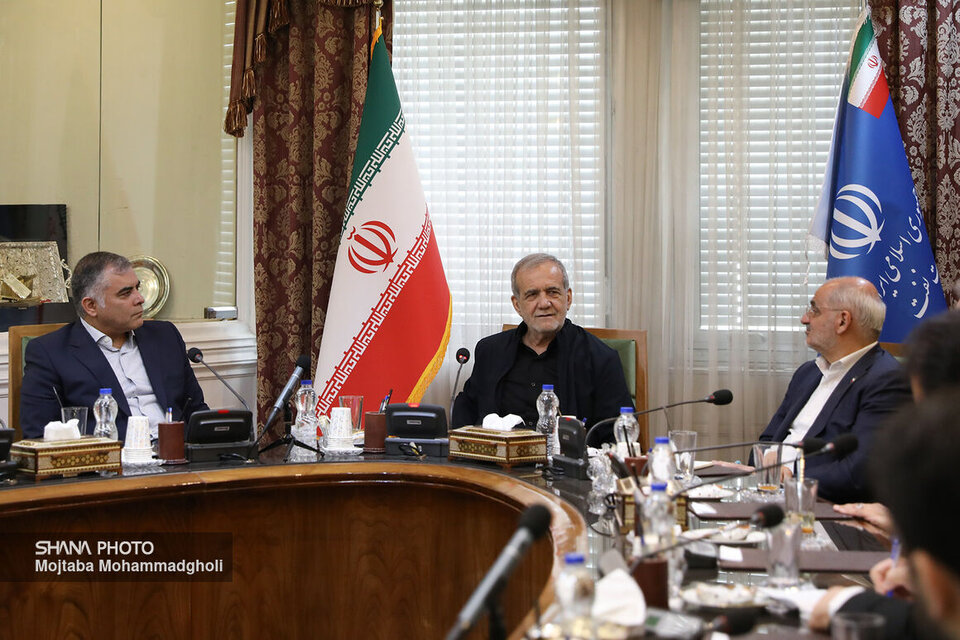Paknejad noted that senior managers at the meeting with President Masoud pezeshkian represented employees working around the clock. He said the president’s presence would undoubtedly uplift colleagues in the oil sector.
Reflecting on the recent 12-day war, he added, "We learned many lessons during this period. From the first moments of the invasion, all oil industry employees reported to work full-time and took charge of operations."
Oil industry employees stood boldly at their posts
The oil minister highlighted that the entire oil and gas value chain—from production platform workers to refineries—remained operational as the frontline of national fuel supply during the war. Bold measures ensured effective management of the sector.
"One highly effective measure was the president’s delegation of authority to ministers and governors in their respective fields, enabling timely and tough decisions during these critical days," Paknejad said.
Smart fuel management, public satisfaction
Paknejad stated that refining and distribution teams implemented strategic measures to prevent fuel supply disruptions. Optimal limits on fuel withdrawals from personal and station cards reduced lines while ensuring public confidence in supply.
He emphasized that damage to Iran’s gas facilities was repaired in the shortest time possible, and gas supply was managed effectively nationwide without disrupting the National Iranian Gas Company’s operations.
‘Public satisfaction’ the key achievement
The oil minister called "public satisfaction" the most significant achievement of the 12-day period, noting that during his visits to fuel stations, citizens expressed gratitude for the oil industry’s efforts.
A comprehensive report on the Oil Ministry’s performance across various sectors was presented during the meeting.


Your Comment